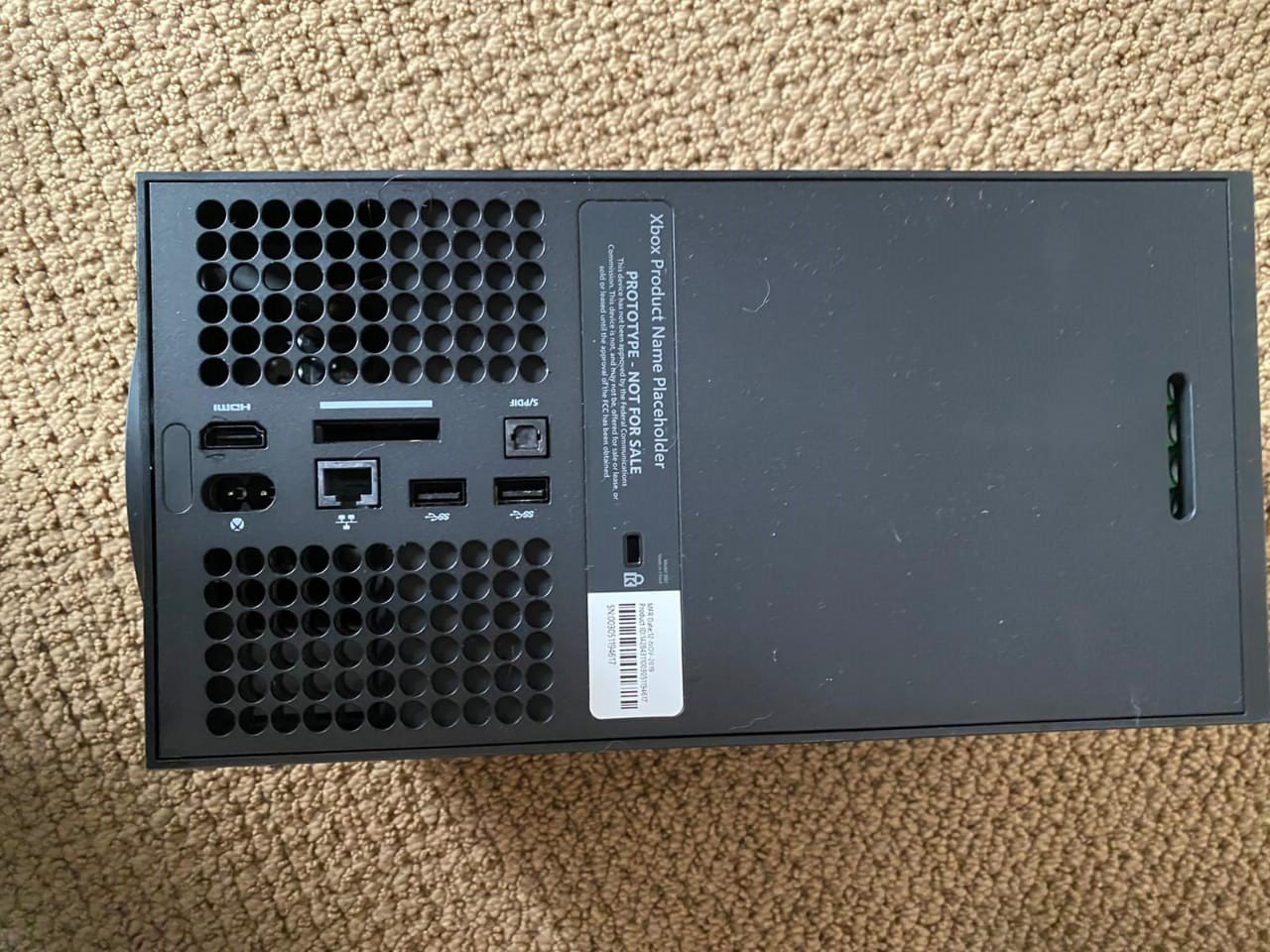The mysterious port on the back of the Xbox Series X may have been revealed.
The back of the Xbox Series X leaked in a series of pictures recently, giving us a better look at what features we can expect from the console. It was thought for a time that the strange strip port at the top center in the picture above was for high-speed debugging tools, but it seems that isn't the case.
On my podcast The Xbox Two (at 53:05), I recently talked about how I was investigating the possibility that the larger port was, in fact, an expandable storage port for CFExpress SSD cards, giving users a way to expand their storage capacity on the Xbox Series X without losing the rapid loading speeds that will come with the NVMe internal drive. Today, Brad Sams noted that he'd heard from sources familiar with Microsoft's plans that it is indeed for expandable storage. I can also confirm at my end that Microsoft is testing CFExpress cards using this port.
What is CFExpress?
CFExpress is an SSD storage solution, typically used with higher-end cameras. It uses PCIe lanes to achieve up to 4GB/s read speeds, although it is very expensive as of writing, with 128GB cards costing anywhere up to $200. You're barely going to be able to store one 4K game without ponying up for a larger card, which run up to $600 for just 512GB of storage.
Is it economically viable to be offering this sort of storage solution? There are a few possibilities. First of all, Microsoft may be licensing the tech to sell their own storage devices in bulk, possibly helping to reduce costs. Second, the cost of technology generally decreases over time. The first 4K OLEDs went on sale for $10,000 a few years ago, now they're far cheaper. SSD costs, in general, are coming down, and if Microsoft (and to speculate, Sony) are looking to adopt CFExpress as the standard for storage expansion for next-gen consoles, it could help drive costs down too. At launch, though, it seems likely that these cards will be pretty expensive, but the option will be there for those who can afford it, and don't want to suffer the external USB storage speeds we're using today.
In any case, it probably won't be long until Microsoft confirms once and for all that the port is indeed used for expandable storage options, particularly with the Game Developer's Conference on the horizon. Always take these sorts of rumors with a pinch of salt, but this one is looking pretty airtight.


